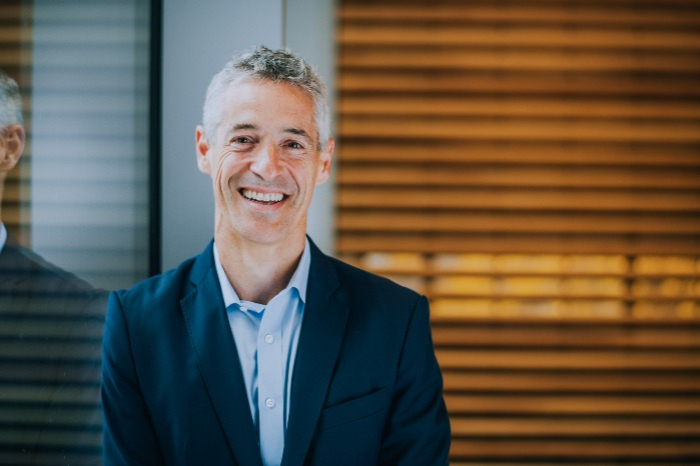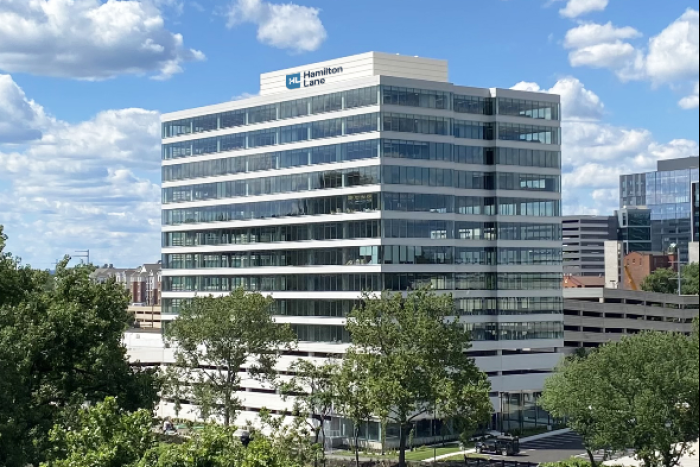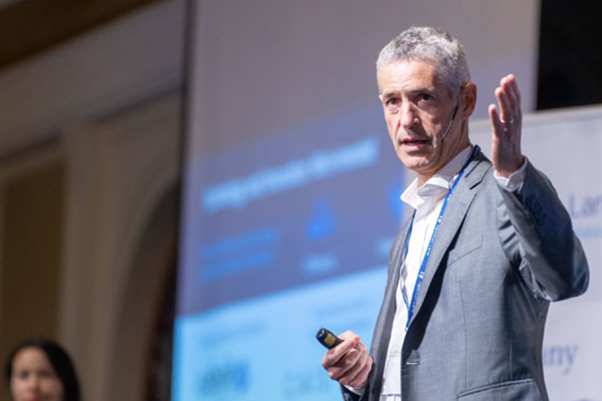Private equity
Private markets open to more high-net-worth individuals: Hamilton Lane
Open-ended structure draws investors seeking liquidity; investors turn the dial to risk-on with a positive view of private markets
By Apr 16, 2024 (Gmt+09:00)
5
Min read
Most Read
Alibaba eyes 1st investment in Korean e-commerce platform


Blackstone signs over $1 bn deal with MBK for 1st exit in Korea


Korea's Lotte Insurance put on market for around $1.5 bn


OCI to invest up to $1.5 bn in MalaysiaŌĆÖs polysilicon plant


NPS loses $1.2 bn in local stocks in Q1 on weak battery shares



The number of high-net-worth individuals allocating capital to private markets is increasing fast. These are wealthy individuals who own at least $1 million of liquid financial assets and seek steady returns on alternative investments.
The global private wealth market increased 73% on-year as of the end of 2023, and the upward trend is expected to accelerate as more high-net-worth investors move into private markets, seeking tailored products for their needs, global investment firm Hamilton LaneŌĆÖs Co-Chief Executive Officer Juan Delgado says.
ŌĆ£This trend is not an exception for South Korea. Korean private wealth has rapidly increased over the past five years since investors came to learn more about open-ended funds for individuals,ŌĆØ he told The Korea Economic Daily during his visit to Seoul in March.
Hamilton Lane manages more than $120 billion in assets across all global private markets as of the end of 2023. Headquartered outside the US city of Philadelphia, the firm has 23 offices worldwide including the Seoul office, launched in 2015. ┬Ā
Hamilton Lane is a major alternative investment firm for Korean investors, managing funds from some 40 local institutional investors including sovereign wealth funds, pensions, insurers and high-net-worth individual investors.
The Co-CEO highlighted that Korean investors are sophisticated and have deep knowledge and expertise about private markets. The firm has also invested in Korean private market deals.
Hamilton Lane launched its evergreen Global Private Assets Fund (GPA), in Korea five years ago. GPA has an open-ended structure that provides flexibility for investments and regular liquidity options. The fund has a lower entry barrier -- a minimum $230,000 initial commitment -- than traditional private markets products, which has attracted high-net-worth investors.

ŌĆ£Through this primary platform, we provide investment opportunities for the underlying assets, which are managed by our partners, who we believe are the best managers in the world. Our clients can build well-balanced, diversified portfolios without having to pay double management fees,ŌĆØ he explained.
Hamilton LaneŌĆÖs key strategy for private equity is co-investment in mid-market companies with a $3 billion enterprise value or less.
ŌĆ£Mid-caps are nimble and flexible. They have the potential to swiftly improve management and profitability, thus repositioning their market position. In this moment of the cycle, everyone starts moving to ŌĆśrisk-on and grow.ŌĆÖ We think it is the best timing to buy mid-caps for both institutional and individual investors,ŌĆØ the Co-CEO said.
ŌĆ£Large companies tend to be slower to grow and take a longer time to affect change. The large caps, particularly in the tech sector, are also expensive today compared to any historical standards,ŌĆØ he added.
There is a common belief that mid-caps have more limited liquidity than large caps. However, he said, that is not the case when investors look at historical data.
ŌĆ£Mid-market companies are easier to refinance or sell to private equity firms. The only area where small and mid-caps might see disadvantages is the initial public offering market because it requires a minimum level of company size, but IPOs make up only about 25% of exits in private markets.ŌĆØ

Hamilton Lane is keeping an eye on two fast-growing industries. One is healthcare, and the other is business services.
The firmŌĆÖs healthcare portfolio encompasses makers of medical consumables and devices such as bandages, blades and blood pressure monitors, as well as clinical research labs. Its business services exposure covers supply chain automation, equipment rental and software to enhance operational efficiency from retail to construction industries.┬Ā
ŌĆ£I would say healthcare and business services are too underappreciated. There is a lot of focus on the consumer goods industry, but it is a relatively small component of private markets,ŌĆØ he said.
ŌĆ£Healthcare and business services are resilient, capex-light and process-heavy, with huge high value-add components. I believe that a lot of (companies in) these areas have relations with big populations in cities, where people seek something beyond just living,ŌĆØ he added.
Hamilton Lane takes a careful approach to artificial intelligence ventures as the market is overheated with pockets of high risk of losing principal, the Co-CEO said. The biggest risk for most investors nowadays, however, is too much exposure to cash or real estate due to value fluctuations, he added.┬Ā
He advised investors to consider balanced portfolios given their age, life plan and risk-return profiles, instead of betting too much on either private equity or credit. As equity and credit have different risk-return profiles, investors shouldnŌĆÖt lean too much on only one of them, he noted.
Hamilton Lane points to the historical outperformance of private markets over public markets and is optimistic about the year ahead, as investors gain confidence in the US economy and the Federal ReserveŌĆÖs rate policy in the mid to long term.
ŌĆ£Although risks from geopolitical and other major events around the world remain, we believe investors are feeling more positive about the current macro-economic environment,ŌĆØ the Co-CEO said.
ŌĆ£The sentiment we are hearing from clients is that they are looking to find ways to turn the dial to risk-on a little more than 12 months ago. We see investors continue to flood into the private markets and expect the markets to revive with companies' robust earnings,ŌĆØ he added.
Write to Jihyun Kim at snowy@hankyung.com
Jennifer Nicholson-Breen edited this article.
More to Read
-
 Private equityKorean LPs seek private equity secondaries amid liquidity crunch
Private equityKorean LPs seek private equity secondaries amid liquidity crunchFeb 01, 2024 (Gmt+09:00)
4 Min read -
 Asset Owners ReportPrivate debt, infrastructure remain top picks for Korean LPs in 2024
Asset Owners ReportPrivate debt, infrastructure remain top picks for Korean LPs in 2024Jan 29, 2024 (Gmt+09:00)
6 Min read -
 Private debtKorean LPs stick to private debt amid market uncertainties
Private debtKorean LPs stick to private debt amid market uncertaintiesFeb 01, 2024 (Gmt+09:00)
3 Min read -
 Private equityKorea Post selects Ardian, Hamilton Lane for $100 mn co-investment
Private equityKorea Post selects Ardian, Hamilton Lane for $100 mn co-investmentDec 01, 2021 (Gmt+09:00)
2 Min read
Comment 0
LOG IN


